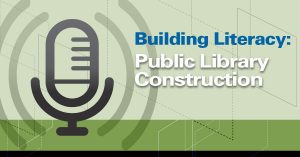
MBLC Service Update
May 20, 2020
Past Updates
April 1, 2020
April 8, 2020
April 15, 2020
April 22, 2020
April 29, 2020
May 6, 2020
May 13, 2020
As we work together to get through the current reality, the MBLC will provide regular updates on MBLC services and other statewide issues. Please let us know if there’s info you’d like us to cover—we’ll include it if we are able. Stay well.
State Reopening Advisory Board
Governor Baker released the comprehensive plan to safely reopen the Massachusetts economy, get people back to work, and ease social restrictions while minimizing the health impacts of COVID-19. Full information on this release can be found here: https://www.mass.gov/info-details/reopening-massachusetts
The first phase allows libraries and businesses who meet standards and requirements to consider opening on May 25th with heavily restricted services and reduced staffing. The Governor anticipates that Phase 1 will last a minimum of three weeks and could last longer before moving to the next phase. The May 25th opening date is a guidance, not a requirement. Not all libraries will be ready to open due to limited staffing and budgets. Each library in consultation with their municipality will decide when they are ready to open, and at what level of service
Libraries are specifically mentioned in the listing of businesses by industry with the following guidance:
Libraries
Phase 1 – May 25 for curbside pickup and delivery only
Phase 2 – browsing inside the Library with restrictions
State Aid- Reopening survey
Contact: Liz Babbitt
In light of the Governor’s phased re-opening plan, please update the COVID19 reopening survey via the new LibWizard form This will be shared with the library community in a Google spreadsheet titled “COVID19: Re-opening Public Libraries Survey”.
We understand that COVID19 will continue to be a serious threat to public health and that your plans may change as the situation evolves so we will NOT be creating a version of this survey for the public UNTIL libraries have started opening.
You can still update the original COVID19 Closure form via this LibWizard link: https://mblc.libwizard.com/f/covid-19 . I’ll continue to update that Google sheet for the next few weeks.
CARES ACT Grants
Contact: Lyndsay Forbes
Celeste Bruno
The MBLC is happy to announce the CARES ACT grants for online reading software (Beanstack), virtual programming, and mental health. The grants were developed in collaboration with Christi Farrar and April Mazza from MLS and were based heavily on the needs expressed during their weekly virtual check-ins with hundreds of librarians.
Here’s all the info.
Construction-The Massachusetts Public Library Construction Program (MPLCP)
Contact: Lauren Stara
Andrea Bunker
Bond Bill News
From Jennifer Harris, Chair, MLA Legislative Committee:
Thanks to your advocacy last week concerning the MBLC Construction funding in the Infrastructure bond bill (H4708), 50 additional co-sponsors signed on to support the amendment filed by Library Caucus Co-Chairs, Reps. Natalie Higgins and Brian Murray, to increase the Massachusetts Public Library Construction Program (MPLCP) funding from $100 million to $150 million. The Construction Bond funding at $150 million will allow the MBLC to complete all of the projects currently on the waitlist and to prepare for a future grant round. The amendment language and the list of co-sponsors can be found by clicking here.
Construction projects to start-up again
Governor Baker’s Reopening Advisory Board released its report and guidelines for the reopening of construction sites, including public library construction funded through the Massachusetts Public Library Construction Program.
Sites are permitted to begin reopening as of, May 18, 2020, with the implementation of the required safety protocols outlined in the attached documents. Once the protocols are in place, construction may resume. The documents can be found here: https://www.mass.gov/lists/safety-standards-for-construction.
Please note the highlighted portions of the Sector-Specific Workplace Safety Standards. Each project’s Owner’s Representative will be required to forward the following documents to the MBLC Library Building Specialist on the project as soon as they are received.
- The site-specific risk analysis and enhanced COVID-19 safety plan
- The completed MA COVID-19 Checklist
- Each written daily report from the designated COVID-19 Officer
Construction Podcast is featured in Library Journal.
Episodes:
Sustainability and Building Performance: An Interview with Building Evolution Corporation
Designing for Sustainability: An Interview with Finegold Alexander Architects
LSTA-Institute of Museum and Library Services
Scholarships Help Small Libraries
The Massachusetts Board of Library Commissioners (MBLC) and Massachusetts Library System (MLS) are pleased to announce recipients of the scholarships to attend the Association for Rural and Small Libraries (ARSL) annual conference in Wichita, Kansas, September 30-October 3, 2020.
The recipients are as follows:
Beverly Bullock, Director, Meekins Library in Williamsburg
Nicole Daviau, Director, Porter Memorial Library in Blandford
Jessie McKinney, Children’s Librarian, Raynham Public Library
Jessica O’Connor, Director, West Falmouth Library
Sheila Parks, Director, Lanesborough Public Library
Misha Storm, Library Assistant, Greenfield Public Library
More info
Preservation and Disaster Recovery
Contact: Evan Knight
State Resource on Purchasing Hygienic or Protective Supplies for the Workplace
From yesterday’s (Tuesday, May 19) MEMA situation report, there is a helpful resource highlighted among the Commonwealth’s ‘Reopening Massachusetts’ website that may be particularly helpful. “Reopening: Purchasing Hygienic or Protective Supplies for the Workplace” (https://www.mass.gov/info-details/reopening-purchasing-hygienic-or-protective-supplies-for-the-workplace) compiles resources information for employers and employees about supplies needed to return to workplaces, and connects businesses with manufacturers and distributors. There is a sortable list of vendors, with contact information, that can supply materials needed during all phases of reopening.
Project REALM (OCLC, IMLS, Battelle research partnership) releases public website
A new site is now available to support the research partnership between OCLC, the Institute of Museum and Library Services, and Battelle to reduce the risk of transmission of COVID-19 to staff and visitors engaging in delivery or use of museum, library, and archival services. Current progress and ongoing updates for the REALM project (REopening Archives, Libraries and Museums) can be found at https://www.webjunction.org/explore-topics/COVID-19-research-project.html. The site includes a research timeline, committee members, and will be updated with program results and resources as they become available. You can sign up to receive project updates by email.
PJ Drive
Contact: Rachel Masse
Matt Perry
Way back in March we asked everyone to please hold PJs in place. The warehouses were getting full, DCF workers were getting overwhelmed, and librarians weren’t comfortable handling pajamas.
The big question now is once staffs are able to get back into the buildings what do we do with the PJs now?
For libraries that still have PJs, is it possible to donate the pajamas locally?
If you can’t donate locally, please hold them for 2 weeks after delivery opens up again. If you have questions about which warehouse you should send your pajamas to please contact Rachel.
Matt is working with MLS and Cradles to Crayons to get the PJs that are currently in warehouses picked up.
This is probably the last thing on your mind but if you haven’t submitted your totals to Rachel please do so. Also if some pajamas already went out please give your best estimate.
Lastly the winners most likely won’t be announced until sometime in September since schools also participate.
Promotion/Summer Library Program
Contact: Celeste Bruno
Matthew Perry
Rachel Masse (summer and the Bruins)
Bruins Prize winners for Summer 2020
see the list
The First Lady of the Commonwealth and Blades Reading Challenge provides an opportunity for libraries that have had to cancel summer plans to be a part of a statewide initiative. The library community sets a goal and once it’s reached they are entered into a drawing to win even more Bruins prizes to be awarded late in the summer. Register and order materials
Video Library (for kids and teens)
Video site
Upload your video directly or email it to Celeste
State Aid To Public Libraries
Contact: Liz. Babbit
Uechi Ng
Mary Rose Quinn
ARIS Workshops
State Aid will be hosting eight ARIS (Annual Report Information Survey) workshops online in June via Zoom. All sessions will take place from 10:00 am -12:30 pm. We’ve added half an hour to each session to allow for additional questions you may have. Registration will be through the MBLC Calendar
The dates are:
June 3
June 10
June 11
June 16
June 17
June 18
June 24
June 25
Reporting Deadlines for FY2021:
ARIS will open as usual on July 1st but the deadline will be extended until October 2nd to allow libraries and networks more time to gather statistics. The Financial Report and State Aid Compliance Application will open August 7th as scheduled and also close on October 2nd. Municipalities applying for a waiver of the FY2021 MAR will have until November 6th to complete additional paperwork.
PLEASE NOTE: All dates are based on current information we have about COVID19 and the Governor’s State of Emergency. We will reassess deadlines if necessary but they will not be earlier than stated above.

